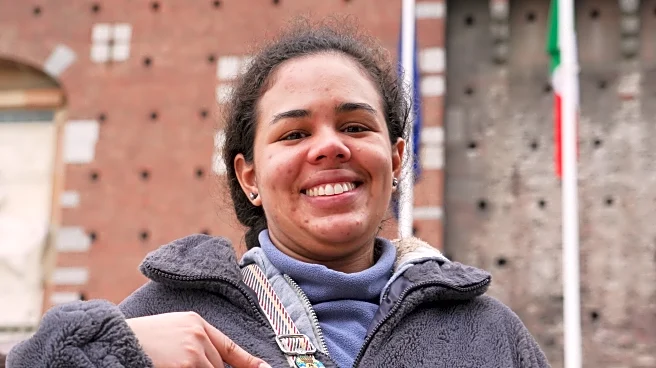What's Happening?
The International Olympic Committee (IOC) has recommended that no international sporting events be held in Indonesia following the country's decision to bar Israeli athletes from participating in the gymnastics world championships in Jakarta. This decision has led
the IOC to cease discussions with Indonesia regarding hosting future Olympic events. The Indonesian government had previously announced that Israeli athletes would be denied visas, sparking opposition within the country. The IOC emphasized the importance of non-discrimination and political neutrality in international sports, stating that all eligible athletes must be allowed to compete without discrimination.
Why It's Important?
The IOC's recommendation highlights the ongoing geopolitical tensions affecting international sports. By barring Israeli athletes, Indonesia risks isolating itself from the global sporting community, potentially impacting its ability to host future events. This situation underscores the broader issue of political influence in sports, where athletes' access to competitions can be hindered by international relations. The IOC's stance reinforces the principle that sports should remain a neutral ground, free from political interference, ensuring fair competition for all athletes regardless of nationality.
What's Next?
The Indonesian Olympic committee has been invited to discuss the issue with the IOC in Lausanne, Switzerland. Until Indonesia provides adequate guarantees for non-discriminatory access to international competitions, the IOC will recommend against staging events in the country. This could lead to significant diplomatic and economic repercussions for Indonesia, as hosting international events often brings substantial revenue and global recognition. The situation may prompt other countries to reconsider their policies regarding athlete participation, potentially influencing international sports governance.

















